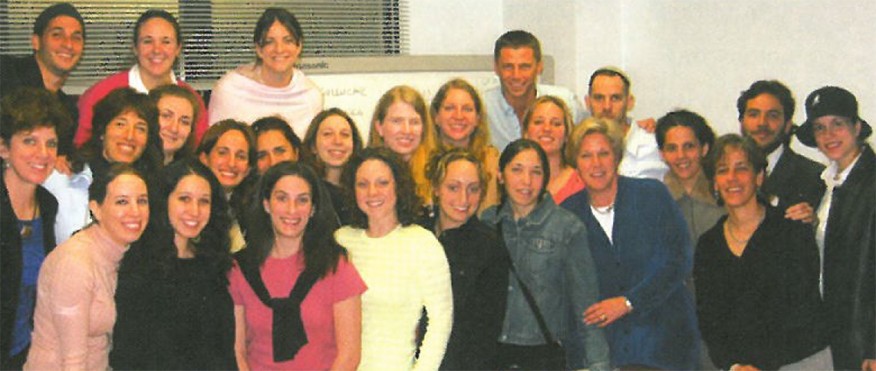In May 2004, I took one of the most educational and powerful journeys of my life. I was fortunate enough to travel to Buenos Aires, Argentina, with the students and staff of the University of Michigan's Sol Drachler Program in Jewish Communal Leadership. We were able to take this amazing trip because of generous funding from the Jewish Federation of Metropolitan Detroit and the University of Michigan's International Institute. Central to the missions of both the School of Social Work and the Sol Drachler Program is inclusion of an international curriculum. An understanding of the Diaspora community beyond the United States is essential to comprehend both the commonalities and complexities of the Jewish community as a whole.
Our mission for this trip was specific. We went to Buenos Aires to study the structure and function of the Jewish community which is more than 200,000 strong, and to learn how the community has learned to cope with the economic crisis that has plagued their country for more than five years. The most severe impact occurred after the devaluation of the peso in December 2001.
In the seven short days we spent in Buenos Aires, we visited with Jewish communal professionals at the American Jewish Joint Distribution Committee, the Jewish Agency For Israel, The Arlene Fern School (a Jewish day school), Hillel, Baby Help, the Ariel Job Center, Temple NCIEmanuel, the Leatid Program, Hebraica (a large Jewish Community Center), Akim (an agency for Jewish adults with mental disabilities), the ORT Argentina school, BAMA (a Jewish education agency), Comedores Populares (a Jewish soup kitchen), and Radio Jai (the only Jewish radio station in Latin America). We also had the opportunity to meet with numerous other Jewish communal professionals, as well as with professionals at Caritas, a large Catholic social services agency.
Throughout the trip, I was amazed at how open the staff, volunteers and participants were with us. They spoke frankly about the effects of the economic crisis on the Jewish community and the priorities and projects of the Jewish agencies that serve this community. We learned that 70 social welfare centers have opened in Buenos Aires since the major crisis in 2001 to provide food, fmancial assistance, medical care and psychological services to the "new poor." The new poor are the Jews who, formerly of the large middle class, must now seek monthly assistance just to fulfill their basic needs. We learned that 35 Jewish day schools, or half of what once existed in this thriving Jewish community, have closed in the last three years. We learned that many agencies have cut their annual budgets by up to 75% in order to survive in the new economic reality. We also learned that people in this country live amidst many contradictions. We witnessed thousands of Argentineans living in a shantytown just blocks away from some of the wealthiest hotels and neighborhoods in the city. Although we did not perceive anti-Semitism, we were struck by the security posted at all Jewish buildings, a residual of the 1992 terrorist bombing of the Israeli Embassy and the 1994 bombing of AMIA.
Most importantly, we learned that the Jewish community in Buenos Aires is coping, but continues to need our help. The needs of the Argentinean Jews have grown while their economic capability to meet them has shrunk dramaticaJJy. They still rely heavily on foreign aid. Several professionals shared with us their worry that the American Jewish community will soon forget them. They worry that now that we have seen all they've done to combat the crisis we will believe they no longer need our help. I can tell you, this is not the case. They need us now more than ever.
The most important lesson I took home with me from Argentina is that crisis brings opportunity. I saw with my own eyes what a Jewish community can do when faced with real problems that must be dealt with immediately. However, I hope that crisis is not a requirement for the kind of action and effort I saw. I hope that we, Jews in America, facing no traumatic crisis at the moment, can use the resources and skills we have to make our community (our own, the Argentinean) better for our children and ourselves.
Eighteen people returned changed from Argentina with information, stories, pictures and pieces of wisdom we picked up from our colleagues and fellow Jews. We would love to share our experiences with you! If you would like to know more about our trip or what we learned, please contact the Drachler Program.
-Glenda Wucher is a 20-month MSW student in Community Organization/Community and Social Systems with a Management of Human Services minor
